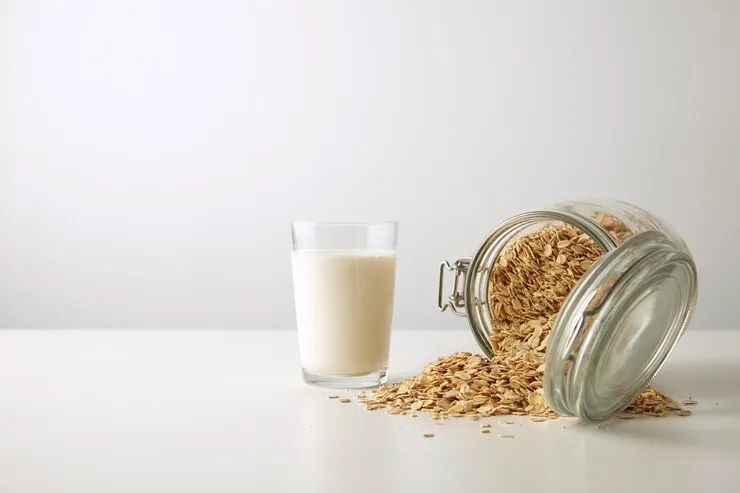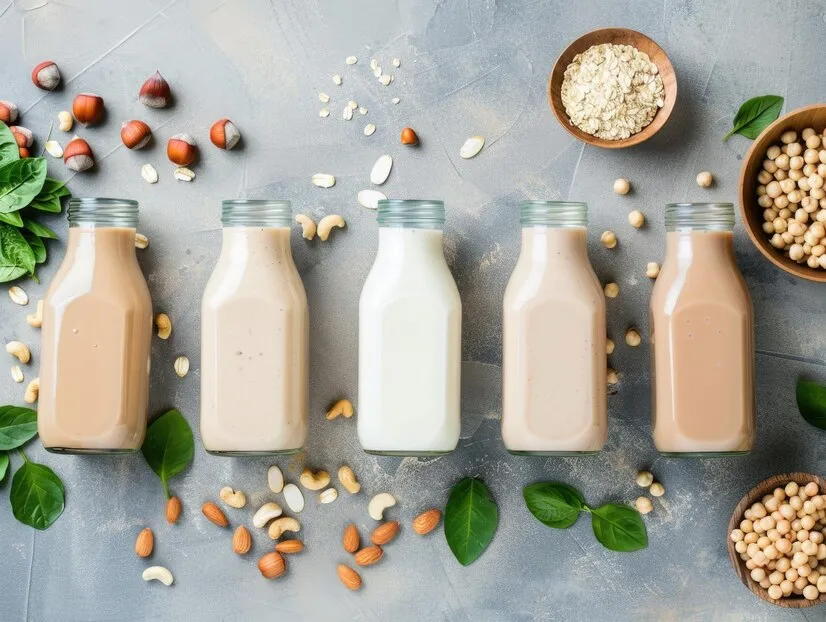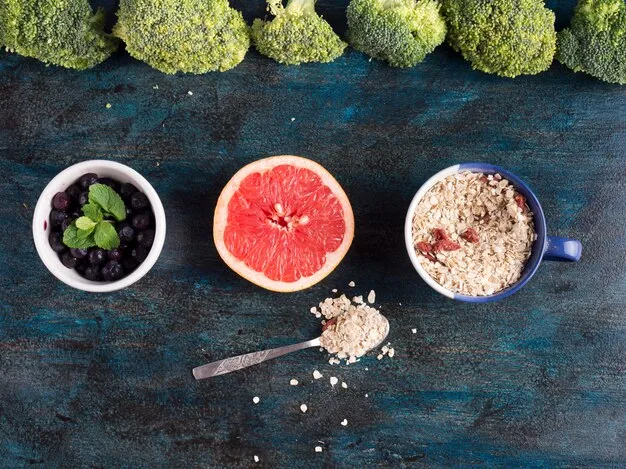Are you looking to explore the world of dairy free milk options? Whether you’re lactose intolerant, following a vegan lifestyle, or simply curious about plant-based alternatives, you’ve come to the right place. In this comprehensive guide, we’ll dive deep into the top 8 dairy free milk options that are taking the health and wellness world by storm.
The Rise of Plant-Based Milk Alternatives
Gone are the days when milk exclusively meant dairy. Today, the shelves of our supermarkets are brimming with an array of plant-based milk alternatives. These dairy free milk options are not just for those with dietary restrictions; they’re becoming increasingly popular among health-conscious consumers worldwide.
The global shift towards plant-based diets has been driven by various factors. Health concerns, environmental awareness, and ethical considerations have all played a role in this growing trend. As a result, the demand for dairy free milk options has skyrocketed in recent years.
But with so many choices available, how do you know which dairy free milk option is right for you? Let’s explore the top 8 plant-based alternatives that are making waves in the world of non-dairy beverages.
1. Almond Milk
Almond milk has become one of the most popular dairy free milk options, and for good reason. This creamy, nutty beverage is not only delicious but also packed with nutrients. Made from ground almonds and water, almond milk offers a light, refreshing taste that pairs well with a variety of foods.
One of the key benefits of almond milk is its low calorie content. A cup of unsweetened almond milk typically contains about 30-50 calories, making it an excellent choice for those watching their weight. It’s also naturally lactose-free and contains no saturated fat, making it heart-healthy.
Almond milk is a good source of vitamin E, an antioxidant that helps protect your cells from damage. Many commercial brands are also fortified with calcium and vitamin D, ensuring you don’t miss out on these essential nutrients found in dairy milk.
However, it’s worth noting that almond milk is relatively low in protein compared to dairy milk. If you’re relying on it as a primary source of protein, you may need to supplement your diet with other protein-rich foods.
Read This! 7 Almond Meal Replacement Powder for Cooking or Baking
2. Soy Milk
Soy milk has been a staple in many Asian cuisines for centuries and was one of the first widely available dairy free milk options in the Western world. Made from soybeans, this plant-based milk is known for its high protein content, making it a favorite among vegetarians and vegans.
A cup of soy milk contains about 7 grams of protein, comparable to cow’s milk. This makes it an excellent choice for those looking to maintain muscle mass or increase their protein intake. Soy milk is also a good source of isoflavones, plant compounds that may help reduce the risk of heart disease and certain types of cancer.
Many soy milk brands are fortified with calcium, vitamin D, and vitamin B12, making them nutritionally similar to dairy milk. This makes soy milk a great option for those transitioning from dairy to plant-based alternatives.
However, soy is one of the most common food allergens, so it may not be suitable for everyone. Additionally, some people choose to limit their soy intake due to concerns about its potential effects on hormone levels, although current research suggests that moderate soy consumption is safe for most people.
3. Oat Milk
Oat milk has taken the world of dairy free milk options by storm in recent years. Known for its creamy texture and mild, slightly sweet flavor, oat milk has quickly become a favorite in coffee shops and homes alike.

This plant-based milk is made by blending oats with water and straining out the solids. The result is a smooth, creamy beverage that’s naturally sweet without added sugars. Oat milk is particularly popular in coffee drinks due to its ability to froth well, making it a great choice for lattes and cappuccinos.
From a nutritional standpoint, oat milk offers several benefits. It’s naturally high in fiber, particularly beta-glucan, a type of soluble fiber that’s been shown to help lower cholesterol levels. Oat milk is also often fortified with vitamins and minerals, including calcium, vitamin D, and vitamin B12.
One potential downside of oat milk is its higher carbohydrate content compared to other plant-based milks. While this can be beneficial for athletes looking for quick energy, it may not be the best choice for those following low-carb diets.
4. Coconut Milk
Coconut milk brings a taste of the tropics to the world of dairy free milk options. Made from the flesh of coconuts blended with water, this creamy beverage offers a rich, indulgent flavor that’s perfect for both sweet and savory applications.
One of the unique aspects of coconut milk is its fat content. While it’s higher in fat than many other plant-based milks, the fat in coconut milk is primarily medium-chain triglycerides (MCTs). These fats are metabolized differently by the body and may offer some health benefits, including improved heart health and weight management.
Coconut milk is naturally sweet and creamy, making it a popular choice for smoothies, curries, and baked goods. It’s also free from common allergens like nuts and soy, making it a safe option for many people with food allergies.
However, it’s worth noting that coconut milk is relatively low in protein and other nutrients compared to some other dairy free milk options. Many commercial brands are fortified with vitamins and minerals to address this, but it’s always a good idea to check the label.
5. Rice Milk
Rice milk is one of the most hypoallergenic dairy free milk options available. Made from milled rice and water, it’s free from all of the most common allergens, including dairy, soy, nuts, and gluten (when made from brown rice).
This plant-based milk has a naturally sweet taste and a thin, watery consistency. Its mild flavor makes it versatile for use in cooking, baking, or drinking on its own. Rice milk is often fortified with calcium and vitamin D to make it nutritionally comparable to dairy milk.
One of the main advantages of rice milk is its suitability for people with multiple food allergies or intolerances. It’s a safe choice for those who can’t consume other plant-based milks due to allergies or sensitivities.
However, rice milk is higher in carbohydrates and lower in protein compared to many other dairy free milk options. It also has a higher glycemic index, meaning it can cause a more rapid increase in blood sugar levels. This may make it less suitable for people with diabetes or those following low-carb diets.
6. Cashew Milk
Cashew milk is another popular nut-based option in the world of dairy free milk alternatives. Known for its rich, creamy texture and subtle nutty flavor, cashew milk offers a luxurious drinking experience.
Made by blending cashews with water, this plant-based milk is surprisingly low in calories when unsweetened. A cup of unsweetened cashew milk typically contains about 25-50 calories, making it one of the lowest-calorie options among dairy free milk alternatives.
Cashew milk is naturally rich in healthy fats, including monounsaturated and polyunsaturated fats. These fats are beneficial for heart health and can help reduce inflammation in the body. Many commercial cashew milk brands are also fortified with vitamins and minerals, including calcium, vitamin D, and vitamin B12.
One potential drawback of cashew milk is its relatively low protein content compared to dairy milk or some other plant-based alternatives like soy milk. However, its creamy texture makes it an excellent choice for use in cooking and baking, particularly in creamy sauces and desserts.
7. Hemp Milk
Hemp milk, made from the seeds of the hemp plant, is one of the most nutritionally complete dairy free milk options available. Don’t worry – while it comes from the same plant species as marijuana, hemp milk contains no THC and won’t produce any psychoactive effects.
What hemp milk does offer is an impressive nutritional profile. It’s rich in omega-3 and omega-6 fatty acids, which are essential for heart and brain health. Hemp milk also contains all nine essential amino acids, making it a complete protein source – a rarity among plant-based foods.

The taste of hemp milk is often described as nutty and earthy. While it may take some getting used to for those accustomed to dairy milk, many people enjoy its unique flavor. Hemp milk works well in smoothies, cereals, and baked goods.
One potential downside of hemp milk is that it’s not as widely available as some other dairy free milk options. It can also be more expensive than more common alternatives like almond or soy milk.
8. Pea Milk
Pea milk is one of the newer entries in the world of dairy free milk options, but it’s quickly gaining popularity due to its impressive nutritional profile. Made from yellow peas, this plant-based milk offers a creamy texture and a mild, slightly sweet flavor.
One of the standout features of pea milk is its high protein content. A cup of pea milk can contain up to 8 grams of protein, comparable to cow’s milk and higher than many other plant-based alternatives. This makes pea milk an excellent choice for those looking to increase their protein intake, especially vegans and vegetarians.
Pea milk is also naturally rich in iron and typically fortified with other essential nutrients like calcium, vitamin D, and vitamin B12. It’s free from common allergens like nuts, soy, and gluten, making it a safe choice for many people with food allergies or intolerances.
From an environmental perspective, pea milk has some advantages. Peas require less water to grow than almonds and have a smaller carbon footprint than dairy milk production.
However, as a relatively new product, pea milk may not be as widely available as some other dairy free milk options. Its taste may also take some getting used to for those accustomed to traditional dairy milk.
Choosing the Right Dairy Free Milk Option for You
With so many dairy free milk options available, how do you choose the right one for you? Here are some factors to consider:
- Nutritional needs: If you’re looking for high protein content, soy milk or pea milk might be your best bet. For lower calories, consider almond or cashew milk.
- Taste preferences: Each plant-based milk has its own unique flavor. You might need to try a few to find your favorite.
- Allergies or intolerances: If you have nut allergies, avoid nut-based milks. Rice milk is often a safe choice for those with multiple food allergies.
- Environmental concerns: Consider the environmental impact of different milk options. For example, almond milk requires a lot of water to produce, while oat milk generally has a lower environmental footprint.
- Use: Some milk alternatives work better in certain applications. For example, oat milk froths well for coffee drinks, while coconut milk is great for cooking curries.
Remember, you don’t have to stick to just one type of dairy free milk. Many people enjoy having a variety in their diet, using different types for different purposes.
The Health Benefits of Dairy Free Milk Options
Switching to dairy free milk options can offer several health benefits:
- Lactose-free: All plant-based milks are naturally lactose-free, making them suitable for people with lactose intolerance.
- Lower in saturated fat: Most plant-based milks are lower in saturated fat than whole dairy milk, which can be beneficial for heart health.
- Fortified nutrients: Many dairy free milk options are fortified with vitamins and minerals, providing essential nutrients that may be lacking in a dairy-free diet.
- Plant-based benefits: Plant-based milks contain various beneficial compounds found in plants, such as antioxidants and phytochemicals.
- Digestive health: Some people find plant-based milks easier to digest than dairy milk.
However, it’s important to note that the nutritional content can vary significantly between different types of plant-based milks and even between brands of the same type of milk. Always check the nutrition label to ensure you’re getting the nutrients you need.
Incorporating Dairy Free Milk Options into Your Diet
Transitioning to dairy free milk options doesn’t mean you have to give up your favorite foods and drinks. Here are some ways to incorporate plant-based milks into your diet:
- Morning cereal or oatmeal: Any plant-based milk works well here. Try oat milk for extra creaminess.
- Smoothies: Almond, cashew, or coconut milk can add richness to your smoothies without overpowering other flavors.
- Baking: Most plant-based milks can be used as a 1:1 replacement for dairy milk in baking recipes. Soy milk works particularly well due to its protein content.
- Coffee and tea: Oat milk is a popular choice for coffee due to its creamy texture and ability to froth. For tea, try a lighter option like almond or rice milk.
- Cooking: Use coconut milk in curries, cashew milk in creamy pasta sauces, or soy milk in savory dishes for added protein.
- Homemade ice cream: Coconut milk makes a great base for dairy-free ice cream due to its high fat content.
Remember, it may take some experimentation to find the right dairy free milk option for each use. Don’t be afraid to try different types and brands until you find your favorites.
Conclusion
The world of dairy free milk options is vast and diverse, offering something for every taste preference and dietary need. Whether you’re lactose intolerant, following a vegan diet, or simply looking to reduce your dairy intake, there’s a plant-based milk out there for you.
From the protein-packed soy milk to the creamy oat milk, the tropical coconut milk to the nutritionally dense hemp milk, each option brings its own unique benefits to the table. By understanding the characteristics and nutritional profiles of these different dairy free milk options, you can make informed choices that support your health and lifestyle goals.
Remember, transitioning to plant-based milks doesn’t have to be an all-or-nothing approach. You can start by incorporating these alternatives into your diet gradually, experimenting with different types in various recipes and applications.
As we continue to prioritize our health and the health of our planet, dairy free milk options offer a delicious and nutritious way to make a positive impact. So why not pour yourself a glass of your favorite plant-based milk and toast to a healthier, more sustainable future?
Discover Your Perfect Dairy Free Milk Match
Ready to dive into the world of dairy free milk options? Don’t wait any longer to find your perfect plant-based match! Start by trying out a few different types of dairy free milk in your favorite recipes or daily routines. You might be surprised at how easily these alternatives can fit into your lifestyle and tantalize your taste buds. Remember, every small change can make a big difference in your health and the environment. So go ahead, make your next glass of milk a plant-based one!

FAQ
- Are dairy free milk options nutritionally equivalent to cow’s milk?
While many dairy free milk options are fortified with vitamins and minerals to make them nutritionally similar to cow’s milk, the natural nutritional profile can vary significantly between different types. It’s important to check the label and choose options that align with your nutritional needs. - Can I use dairy free milk options in cooking and baking?
Yes, most dairy free milk options can be used as a 1:1 replacement for dairy milk in cooking and baking. However, the results may vary slightly due to differences in fat content and flavor. Experimentation might be needed to find the best option for each recipe. - Are all dairy free milk options suitable for people with nut allergies?
No, not all dairy free milk options are suitable for people with nut allergies. Almond milk and cashew milk should be avoided by those with nut allergies. Rice milk, oat milk, and pea milk are generally safe alternatives for those with nut allergies, but always check the label for potential cross-contamination warnings. - How long do dairy free milk options typically last?
The shelf life of dairy free milk options can vary depending on the type and whether they’re shelf-stable or refrigerated. Unopened shelf-stable plant-based milks can last several months, while refrigerated versions typically last about 7-10 days after opening. Always check the expiration date and storage instructions on the package. - Are homemade dairy free milk options as nutritious as store-bought ones?
Homemade dairy free milk options can be nutritious, but they may lack the fortified vitamins and minerals often added to commercial versions. If you’re making your own plant-based milk, you might need to ensure you’re getting these nutrients from other sources in your diet. Homemade versions do have the advantage of being free from additives and preservatives often found in store-bought options.




